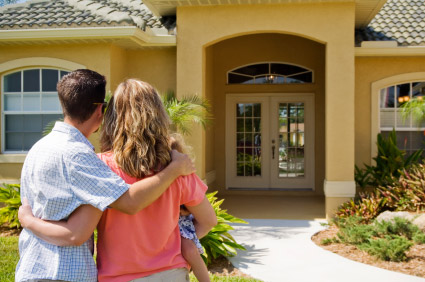Young people in London do not consider themselves adult until they reach the age of 29 and most of them link adulthood with owning their own property, new research from life insurer Beagle Street reveals.
 More than two-thirds (68 per cent) of the 2,000 people (aged 18+) polled by Beagle Street said that buying their first home is a sign they had grown up.
More than two-thirds (68 per cent) of the 2,000 people (aged 18+) polled by Beagle Street said that buying their first home is a sign they had grown up.
Nearly the same proportion of respondents (65 per cent) identified becoming a parent as a sign of adulthood and just over half (52 per cent) said getting married is the end of adolescence.
Other signs of being a grown up include becoming house proud, having a joint bank account, looking forward to a night in and doing DIY.
Sociologist Dr Frank Furedi from the University of Kent comments:
“More adults than ever before are leaving it later in life to move out from the parental home, get married or have children. This is having a knock on effect to how old and ‘grown up’ people actually perceive themselves to be, which suggests that the old adage of age being but a number is factually true. The research shows that what people really believe constitutes being an ‘adult’ are actually significant life events that give them adult responsibilities. Up until that point, regardless of their actual age, they are still perceived adolescents.”
Top 10 signs of adulthood
- Buying your first home (68 per cent say this signifies being a grown-up)
- Becoming a parent (65 per cent)
- Getting married (52 per cent)
- Paying into a pension (29 per cent)
- Becoming house proud (23 per cent)
- Taking out life insurance (21 per cent)
- Doing DIY (20 per cent)
- Looking forward to a night in (18 per cent)
- Hosting dinner parties (18 per cent)
- Having a joint bank account (15 per cent)
***
Top 10 reasons to not being considered “a grown-up”
- Relying on parents (39 per cent agree)
- Living at home longer (35 per cent)
- Playing computer games (31 per cent)
- Watching kids movies like Inside Outor Frozen (31 per cent)
- Watching cartoons (30 per cent)
- Fear growing up and taking responsibility (28 per cent)
- Not wanting a real or a 9-5 job (25 per cent)
- Desire to travel and see the world (24 per cent)
- Idolising juvenile adults on TV like Smithy in Gavin & Stacey (20 per cent)
- A lack of real life education (20 per cent)




